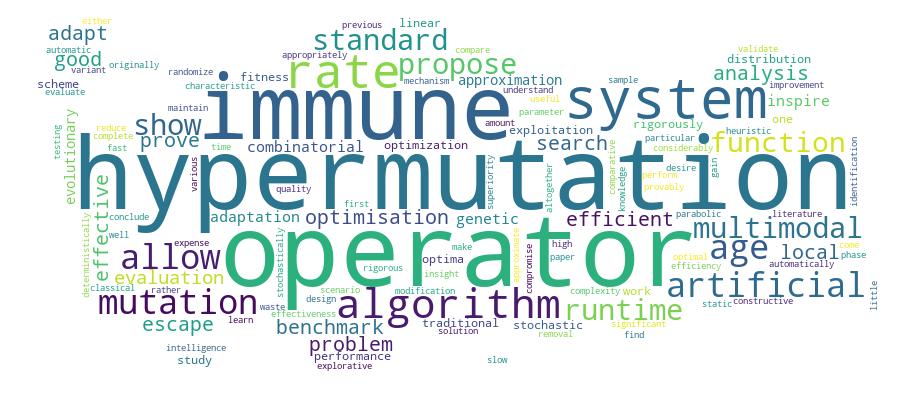Çörüş, Doğan
Loading...

Profile URL
Name Variants
Corus,D.
Corus, Dogan
Corus,Dogan
C.,Dogan
DOĞAN ÇÖRÜŞ
D. Çörüş
ÇÖRÜŞ, Doğan
Doğan Çörüş
Ç., Doğan
Dogan, Corus
C., Dogan
Çörüş D.
Çörüş, D.
D. Cörüş
ÇÖRÜŞ, DOĞAN
Doğan ÇÖRÜŞ
Çörüş,D.
Çörüş, Doğan
Cörüş, Doğan
Cörüş, D.
Doğan Cörüş
Çörüş, DOĞAN
Corus, Dogan
Corus,Dogan
C.,Dogan
DOĞAN ÇÖRÜŞ
D. Çörüş
ÇÖRÜŞ, Doğan
Doğan Çörüş
Ç., Doğan
Dogan, Corus
C., Dogan
Çörüş D.
Çörüş, D.
D. Cörüş
ÇÖRÜŞ, DOĞAN
Doğan ÇÖRÜŞ
Çörüş,D.
Çörüş, Doğan
Cörüş, Doğan
Cörüş, D.
Doğan Cörüş
Çörüş, DOĞAN
Job Title
Dr. Öğr. Üyesi
Email Address
Main Affiliation
Computer Engineering
Status
Current Staff
Website
ORCID ID
Scopus Author ID
Turkish CoHE Profile ID
Google Scholar ID
WoS Researcher ID
Sustainable Development Goals
SDG data is not available

Documents
25
Citations
565
h-index
13

Documents
21
Citations
471

Scholarly Output
2
Articles
1
Views / Downloads
6/420
Supervised MSc Theses
0
Supervised PhD Theses
0
WoS Citation Count
29
Scopus Citation Count
30
WoS h-index
2
Scopus h-index
2
Patents
0
Projects
0
WoS Citations per Publication
14.50
Scopus Citations per Publication
15.00
Open Access Source
2
Supervised Theses
0
Google Analytics Visitor Traffic
| Journal | Count |
|---|---|
| IEEE Transactions on Evolutionary Computation | 1 |
| Proceedings of The 16th Acm/Sigevo Conference on Foundations of Genetic Algorithms (Foga'21) | 1 |
Current Page: 1 / 1
Competency Cloud

